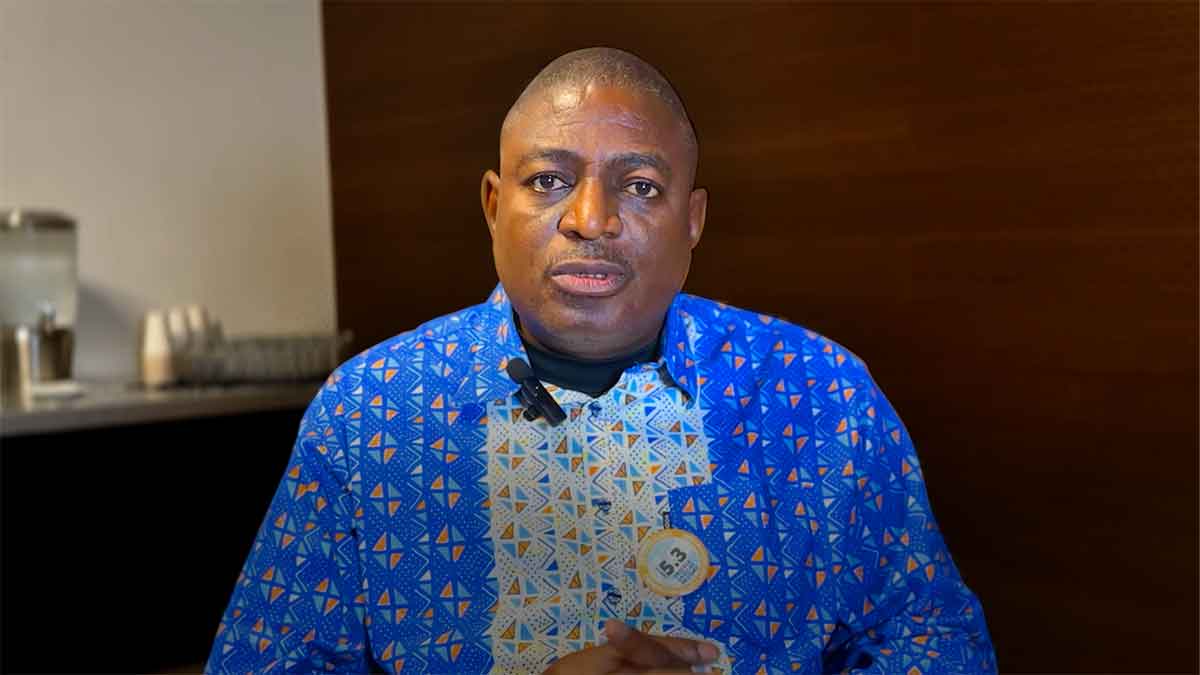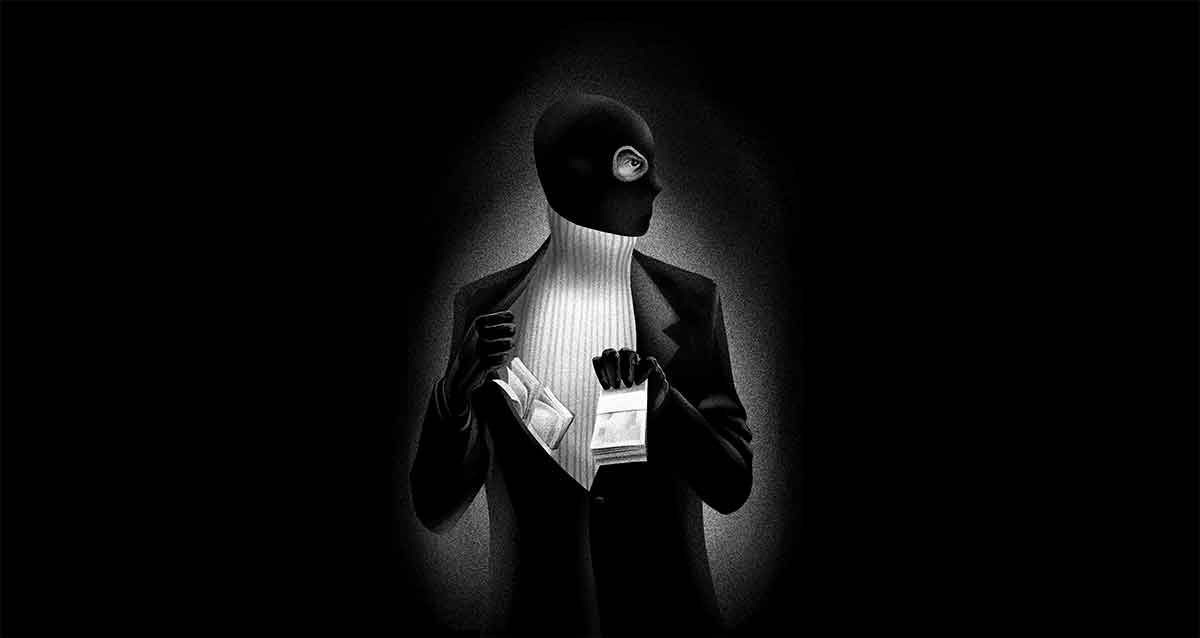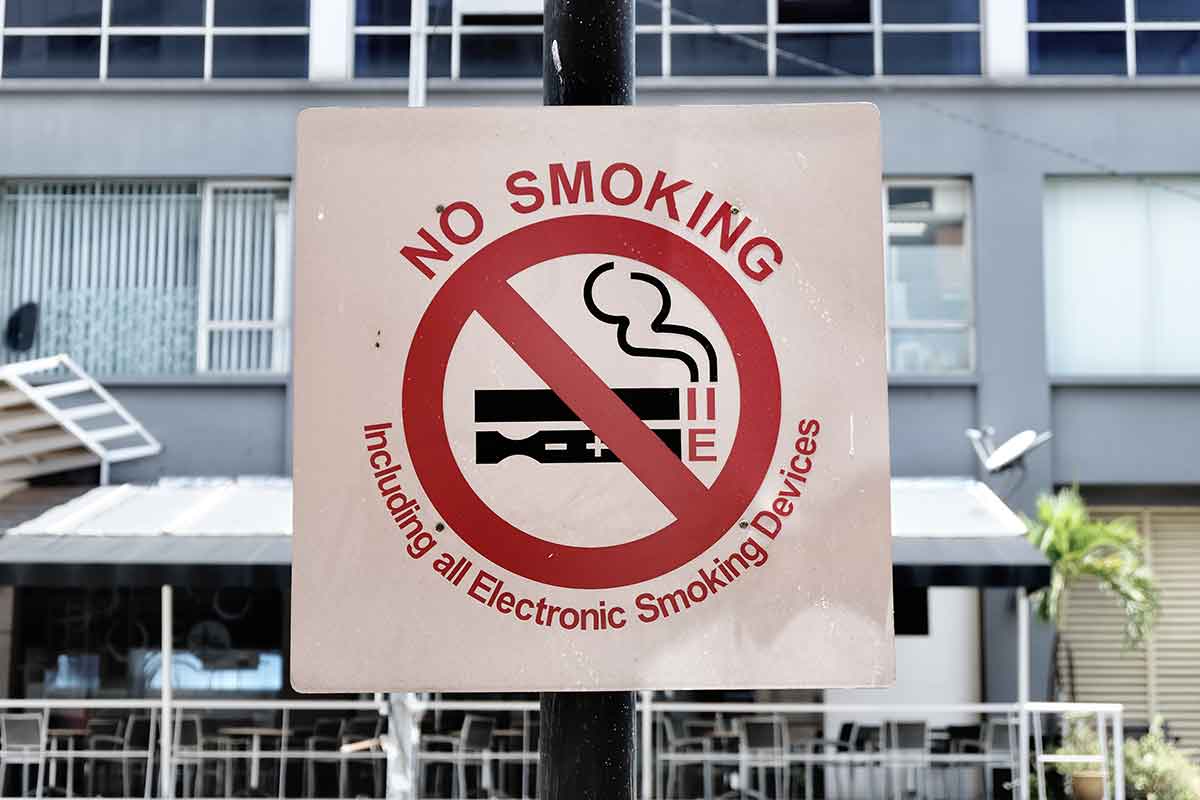- Resources
- News
-
-
Get Email Updates
Sign up for STOP's emails and never miss an update on our latest work and the tobacco industry's activity.
-
Get Funding
Ready to tackle industry interference? You could be eligible for a grant.
-
Share a Tip
Do you have information on tobacco industry misconduct in your country? Let us know.
-
Get Email Updates
Sabotaging Policy
August 06, 2024

Akinbode “Bode” Oluwafemi has found himself in many unsettling situations he feels were linked to his tobacco control work across Nigeria and Africa.
An incident outside a factory of one of the world’s largest cigarette makers stands out as a frightening example of tobacco industry interference.
A longtime advocate, Oluwafemi was impressed with the “vibrant” youth involved in an anti-tobacco campaign. When they asked to protest at the factory in Ibadan, Nigeria, he and his colleagues set up logistics and arranged buses. The young demonstrators brought mats for a peaceful sit-in—and thankfully, a television camera crew.
The reaction stunned Oluwafemi.
“It was just a simple nonviolent protest, sitting down in front of their factory. They responded with armored personnel carriers, trucks and trucks of policemen,” said Oluwafemi, executive director of Corporate Accountability & Public Participation in Africa.
He was later told someone had reported a bomb threat. The TV crew’s presence prevented an ugly law enforcement response, he said.
Oluwafemi discusses his experiences—including an attack on his Lagos home, attempted bribes and other disturbing incidents—in STOP’s series, “Lives at Stake: True Stories of People Challenging Big Tobacco.” The video collection highlights issues covered by the Global Tobacco Industry Interference Index, which guides policymakers on preventing industry meddling. In future episodes, more advocates from around the world will share their accounts of standing up to Big Tobacco.
Many forms of tobacco industry interference
A 2022 academic paper suggests Oluwafemi isn’t alone: Most tobacco control advocates encounter interference—especially in low- and middle-income countries where most of the world’s smokers live.
Researchers with the University of Bath, a partner in STOP, surveyed and interviewed advocates and found:
- 74% experienced what they perceived as intimidation, often in the form of discreditation;
- 43% experienced serious threats, including violence, burglaries, cyberattacks and surveillance;
- and legal threats are common, even when lawsuits are unfounded and unlikely to succeed.
The tactics drain time and resources and erect obstacles to forming influential relationships, researchers found. Advocates may tone down their messaging or decline to speak up. Others quit tobacco control work, fearing harm to themselves or families.
“I would personally want to have a strong voice,” one advocate told researchers, but “I’m scared.”

The greatest barrier to tobacco control in Africa remains the tobacco companies.
Akinbode Oluwafemi
Tobacco control=social justice
Since he was a kid and the school bus driver thoughtlessly blew smoke in students’ faces, Oluwafemi has loathed cigarettes. Children shouldn’t endure secondhand smoke, he says—nor predatory marketing encouraging them to start smoking. For him, tobacco control is about social justice, preventing disease and protecting coming generations from an industry that exploits young people.
Oluwafemi has seen all manner of industry interference. He’s been called a foreign agent working to stifle development. Industry representatives have tried to sway him with tickets to events and money for environmental issues, another cause he has championed. He’s heard parliamentarians complain of the industry’s “hard practices,” a euphemism for corruption.
“The greatest barrier to tobacco control in Africa remains the tobacco companies,” Oluwafemi said. “The tobacco companies in our region in Africa are even more powerful than some of the countries.”
Policymakers must realize targeting children is “evil,” Oluwafemi says. He urges governments to implement and defend the World Health Organization’s Framework Convention on Tobacco Control, which outlines proven ways to reduce tobacco use and combat industry interference.
He asks those in power to reject products that compromise health, as well as “false solutions tobacco companies peddle,” such as the “harm-reduction” claims used to promote addictive electronic cigarettes and heated-tobacco products.
Confronting Big Tobacco’s interference as a collective
Tactics are changing, the Bath paper reports. Government and advocates should pay close attention. In addition to new products, there are new means of promoting them via influencers, social media and gaming platforms. Attacks on activists are increasingly moving online, too. Oluwafemi has seen it all firsthand.
As interference and intimidation increase, advocates know there’s power in speaking in a unified voice and forming networks to share information, reduce risks, defend each other and teach each other how to respond.
“It would be helpful for everyone to know that they are part of a community facing similar challenges,” one advocate told researchers. “It would encourage them because when you then face intimidation, you feel you’re not alone.”
Oluwafemi also has a message for the tobacco industry—one he conveyed at a dinner to which a friend had invited a top tobacco company director.
“What did we do to you? What do you want us to do so that you stop attacking us?” the director asked Oluwafemi. He chuckles at the memory.
“You know what you just do?” Oluwafemi replied. “Observe the law. Follow the law. Stop marketing deadly products to my fellow citizens.”
“The moment you do that, I have no job. … I can go back to the village and my family.”




